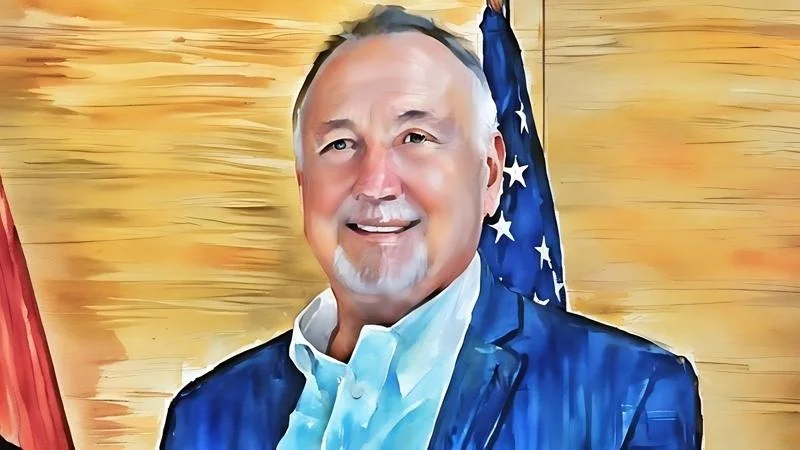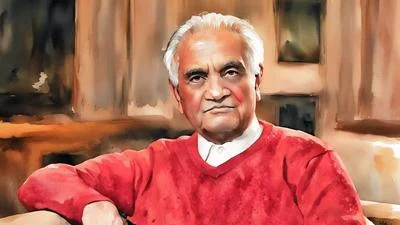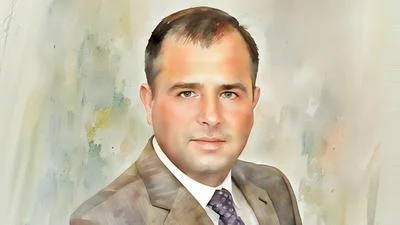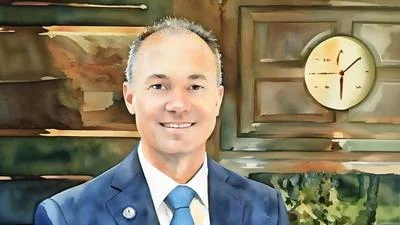Russia’s invasion of Ukraine has entered a “grinding phase,” with missile barrages, drone swarms, and troop concentrations along the front. Saul Anuzis, president of the International Institute, says that without action from NATO, Russia will not stop at Ukraine’s borders.
Born in Detroit to Lithuanian parents who fled Soviet occupation, Anuzis didn’t learn English until he started school. His family endured losses under Russian rule including two uncles killed as partisans, an aunt tortured to death, and relatives trapped in occupied Lithuania until independence. Between 1989 and 1991, he traveled there more than 30 times, helping the first post-Soviet governments through connections with Hillsdale College.
Anuzis says Vladimir Putin “still has enough long-range bombers left that he can still do significant damage.” This means “the challenge for Ukraine is to get enough missiles and anti-missile defense systems so they can repel the Russian attacks,” Anuzis says. He believes Western support has allowed Ukraine to survive, but is concerned that NATO’s restrictions have prevented Kyiv from striking at Russian military infrastructure.
According to Anuzis, “there’s no moral equivalency” between Russian and Ukrainian targeting. “The Russians have kidnapped Ukrainian children, they’re bombing civilian installations, hospitals, schools, apartment buildings.” By contrast, he says, “the Ukrainians have been very diligent in attempting to bomb military objectives only.” That difference, he says, makes Russian tactics “a war of terror” recognized by many international bodies as war crimes.
Reports of a new Russian offensive do not surprise him. He says that Moscow has been willing to lose tens of thousands of soldiers and now employs untrained mercenaries from abroad. Yet Ukrainian forces, using new Leopard tanks and coordinated defenses, have destroyed Russian armor columns where “one tank has taken on four, six, or eight Russian tanks at one time.” He calls the casualty toll tragic but says the results are lopsided and show Russia’s vulnerability when Ukraine is properly equipped.
Anuzis is critical of European governments still buying Russian oil—sometimes indirectly through the so-called “shadow fleet”—while claiming solidarity with Ukraine. “The Europeans are basically funding most of Russia’s budget now,” he says. “Until Europe stops funding Russia by buying the oil and starts actually providing weapons and money to buy the weapons they need, Ukraine is going to be in a very tough situation.”
The stakes are immediate for frontline states like Poland, Finland, Sweden, and the Baltic nations, according to Anuzis. In Estonia, Russian propaganda broadcasts across a river into Russian-speaking communities; Latvia still holds a large ethnic Russian population relocated there during the Soviet era; and Belarus sits on Lithuania’s and Poland’s border. In such a tightly packed area, “you’re talking literally hundreds of yards apart” between major militaries.
This proximity causes what Anuzis says is a “fair share” debate. “The Americans want to be helpful, but we borrow money to do that,” he says. “It is a fair expectation for the Europeans to stand up and do their fair share,” he says. “It has to be real dollars, real military supplies, permission and the ability to take out the military industrial complex that is currently fueling this war.”
He says that Putin’s aims go beyond Ukraine, and the “Russian world” ideology envisions a borderless cultural and political sphere akin to a modernized Soviet empire. “It doesn’t end from an ideological standpoint,” he says. Crimea was the first step, Ukraine the second. “It will try the Baltic States, it will try Poland, it will try Finland… through the Balkans.” According to him, only “peace through strength” will convince Moscow to stop.
Anuzis’s children have visited Lithuania, and two will attend a wedding there this year. Maintaining cultural ties, he says, is essential to preserving the lessons of history for the next generation. “It is something that you try to preserve from a cultural standpoint as well.”
He dismisses Moscow’s latest “peace proposal” as “theater.” “The Russians themselves said this is nothing more than an ultimatum that we know you aren’t going to be able to accept,” he says. “They’re just kind of dragging out this peace process to take advantage of it militarily and politically.” Any pause, according to Anuzis, would only be used to regroup for further expansion.
“It does matter what happens in Ukraine,” he says. “We are free because Americans have been willing to stand up and fight for freedom around the world,” Anuzis says.









